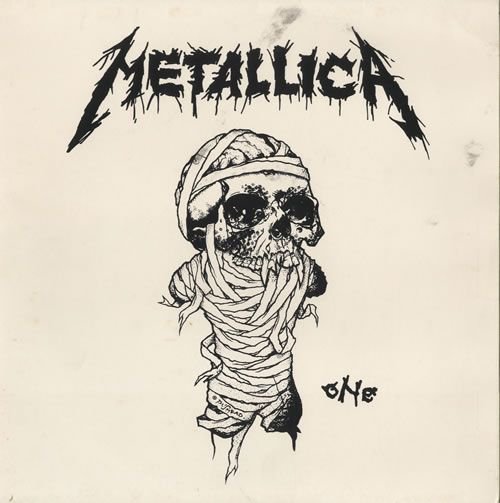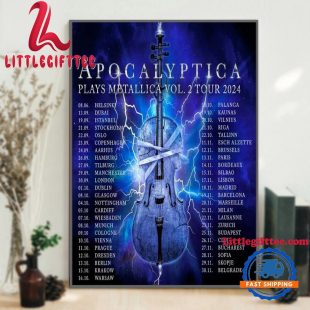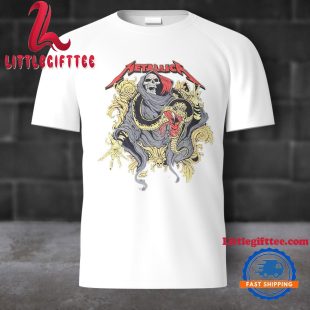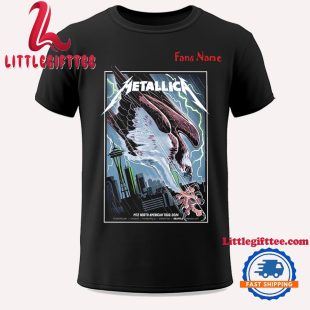Music
Meaning of the Song One by Metallica A Journey into Darkness and Isolation
The meaning of the song “One” by Metallica is a multifaceted exploration of the grim realities faced by soldiers in war. It serves as both an anti-war anthem and a poignant reflection on the psychological toll inflicted upon those who survive the battlefield but at great personal cost. Inspired by Dalton Trumbo’s novel, Johnny Got His Gun, the lyrics speak to the visceral pain and isolation felt by a soldier who has been stripped of his autonomy, senses, and ultimately, his humanity. This article will delve into the themes encapsulated within the song, examining its profound narrative and the emotional resonance it continues to evoke.
The Harrowing Narrative of War

The opening section of “One” draws listeners into a harrowing tale of suffering and despair.
Drawing Inspiration from Literature
Metallica’s “One” finds its roots in Dalton Trumbo’s 1939 anti-war novel, Johnny Got His Gun.
In this novel, Trumbo illustrates the life of Joe Bonham, a young soldier who becomes critically injured during World War I. Much like the protagonist in the book, the soldier depicted in “One” becomes ensnared in a nightmare that renders him helpless, unable to communicate or assert any semblance of control over his life. The direct correlation between Trumbo’s narrative and Metallica’s lyrics unveils a deep-seated critique of warfare, positioning the song as both an homage to literature and a fervent protest against the brutal consequences of conflict.
This literary connection enhances the song’s emotional weight, compelling listeners to reflect on the broader implications of war rather than merely focusing on the glorification of heroism. It brings forth the notion that behind every statistical casualty, there lies a personal story filled with anguish and loss, beckoning us to empathize with the plight of those affected by such tragedies.
The Symbolism of Entrapment
The imagery throughout “One” reinforces feelings of entrapment and anguish.
The soldier’s experience can be likened to being encased within a glass jar—a butterfly desperately flapping its wings yet never able to escape. This metaphor adds layers to the song’s meaning, evoking the idea that while the individual may still be physically present, their essence is trapped, devoid of freedom and agency.
Such vivid imagery compels the listener to confront not only the physical limitations imposed by war but also the psychological barriers that accompany them. It raises questions about what it means to exist and retain one’s identity when stripped of the most fundamental elements of human experience. Thus, the song operates on multiple levels, intertwining notions of captivity, survival, and the questioning of one’s humanity.
The Contrast Between Life and Death
Throughout “One,” there exists a stark contrast between life and death, as well as a longing for the past.
The soldier reflects on memories of life before the explosion—his senses alive with color, sound, and touch. These recollections serve as poignant reminders of the beauty and vibrancy of existence that have been so cruelly ripped away. As hopelessness envelops him, the longing for even a sliver of normalcy becomes painfully apparent.
In this sense, the song transcends mere storytelling; it becomes a universal commentary on loss and the fragility of life. The yearning for connection, for communication, and for understanding resonates deeply, urging listeners to contemplate their own lives and relationships. It invites introspection, fostering a deeper appreciation for the simple joys often taken for granted.
Anti-War Sentiment and Social Critique
At its core, “One” stands as a powerful anti-war statement, challenging societal norms surrounding military conflict.
Amplifying the Voices of the Voiceless
Metallica uses the voice of a critically wounded soldier to shed light on the often-overlooked realities of warfare.
By presenting the narrative through this lens, the band amplifies the voices of those who have suffered silently, unable to share their experiences due to their incapacitated state. This approach compels listeners to recognize the inhumanity of conflict, extending empathy towards those who endure such fates. The vivid descriptions of the soldier’s confinement evoke visceral emotions, pushing the audience to confront uncomfortable truths.
Moreover, by framing the song as an anti-war anthem, Metallica challenges the glorification of battle often perpetuated by cultural narratives. Through raw honesty, the band encourages introspection regarding the true costs of war—costs that extend far beyond battlefield statistics and political rhetoric.
Challenging Heroism and Sacrifice
The portrayal of the soldier in “One” calls into question traditional notions of heroism and sacrifice.
Where society often idolizes warriors engaged in combat, the song instead highlights the aftermath—the debilitating injuries, the mental trauma, and the lifelong repercussions of violence. The soldier becomes a symbol of the tragic consequences that arise from glorified ideals of heroism, forcing us to reconsider the narratives we accept without scrutiny.
As listeners engage with the song, they are prompted to think critically about the consequences of warfare on individual lives and communities. The stark reality portrayed in the lyrics challenges preconceptions about honor and valor, revealing the darker underbelly of conflict and its impact on human existence.
The Role of Music as a Medium for Change
Music has historically served as a vehicle for social change, and Metallica’s “One” is no exception.
Through its haunting melodies and evocative lyrics, the song transcends its genre to become an anthem for peace and reflection. The visceral experience created by the instrumentation mirrors the emotions of the narrative, allowing the listener to feel the weight of the soldier’s suffering. In this way, “One” fosters a collective consciousness regarding the ramifications of war, drawing attention to the necessity of compassion and understanding.
By harnessing the power of music, Metallica cultivates a space for dialogue about the realities of conflict, encouraging introspection and fostering a greater awareness of the scars left by war. The song acts as a catalyst for social change, urging audiences to consider the moral implications of their beliefs and actions.
The Psychological Toll of War

Beyond the physical injuries sustained by veterans, “One” delves into the psychological ramifications of war.
Exploring Trauma and Mental Health
The depiction of a soldier grappling with the aftermath of war illuminates issues surrounding trauma and mental health.
Many veterans face various psychological challenges, including PTSD and traumatic brain injuries, which can render them incapacitated both mentally and emotionally. The haunting lyrics of “One” resonate with those who have experienced similar journeys, sparking conversations about the importance of mental health support for veterans.
In highlighting these struggles, Metallica emphasizes the need for society to recognize and address the invisible wounds inflicted by conflict. The song serves as a reminder that healing extends beyond physical recovery, reaching into the realm of emotional resilience and psychological well-being.
Questioning Identity and Humanity
As the soldier longingly yearns for freedom and connection, the song probes deeper philosophical questions about identity and humanity.
When stripped of one’s physical capabilities, what remains? How does one define themselves when their body no longer responds to their will? The existential reflections woven throughout “One” challenge listeners to consider the essence of being human. The soldier’s struggle to communicate and connect underscores our innate desire for interaction, further emphasizing the fragility of the human experience.
The weight of these inquiries extends far beyond the context of war; they prompt personal reflection on how individuals navigate the complexities of their identities amid adversity. The song serves as an invitation to ponder the core elements that bind us together as humans, regardless of circumstances.
The Collective Memory of War
“One” speaks to the collective memory of war, where trauma and sorrow are often shared experiences.
Veterans carry the weight of their experiences long after returning home, and many grapple with feelings of isolation and disconnection from society. The haunting nature of the song creates a poignant space for reflection on the communal aspects of suffering, urging listeners to acknowledge the broader impact of war on families and communities.
In this sense, “One” transforms the individual soldier’s narrative into a collective story that resonates with anyone who has been touched by war. It serves as a reminder that the scars of conflict leave lasting imprints on society, calling for empathy and understanding toward those enduring such burdens.
Themes of Isolation and the Human Experience

A central theme explored in “One” is the profound sense of isolation felt by the soldier, serving as a microcosm for broader human experiences.
The Desire for Connection
At its heart, “One” speaks to the innate human desire for connection and understanding.
The soldier’s longing for the ability to communicate reflects a universal truth; human beings thrive on interpersonal connections. The yearning for interaction serves as a poignant reminder of how vital relationships are to our overall well-being. In today’s technology-driven world, where superficial connections often prevail, this longing takes on added significance, prompting introspection about our own interactions.
When the soldier expresses a desire for communication, it underscores the importance of empathy and understanding in our relationships with others. The inability to connect can lead to feelings of isolation, mirroring the internal struggles many face in modern society.
Isolation in Modern Society
In an age defined by social media and digital communication, “One” captures the irony of isolation amidst constant connectivity.
While technology allows us to reach out to others, it can often create a façade of connection that lacks depth and authenticity. The soldier’s plight serves as a reminder of the fragility of human experience, beckoning us to seek genuine connections rather than surface-level interactions.
As we navigate our own forms of isolation, we are encouraged to examine our relationships and strive for more profound connections that nourish our souls. The relatability of the soldier’s longing bridges the gap between fiction and reality, resonating with anyone who has felt disconnected from the world around them.
The Fragility of the Human Experience
Ultimately, “One” serves as a haunting reminder of the fragility of the human experience.
The soldier’s tragic fate encapsulates the ways in which conflict can tear apart not only individual lives but also the very fabric of society. The psychological and emotional toll experienced by veterans extends beyond mere statistics; it reverberates through families, communities, and generations.
In this light, the song transcends its specific narrative to encompass a broader commentary on vulnerability and resilience. It compels listeners to confront their own vulnerabilities and acknowledges the interconnectedness of all human experiences.

The meaning of the song “One” by Metallica unravels a tapestry of complex themes surrounding war, trauma, and the inherent desire for connection. Through its harrowing narrative and evocative imagery, the song transcends typical musical boundaries, inviting listeners to engage with the deeper implications of conflict, both personally and collectively.
As an anti-war anthem, “One” challenges societal perceptions of heroism and sacrifice while illuminating the psychological toll inflicted upon veterans. It serves as a poignant reminder of the fragility of human existence, fostering empathy and understanding for those whose voices have been silenced by circumstance. Ultimately, the song calls for a re-examination of the narratives we accept about war, urging us to seek deeper connections and reflect on our shared humanity.




















